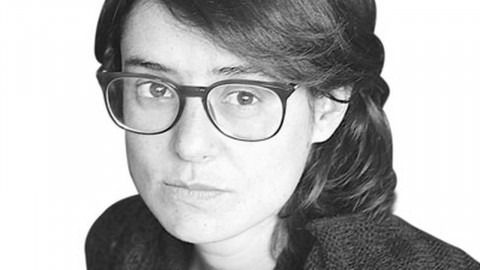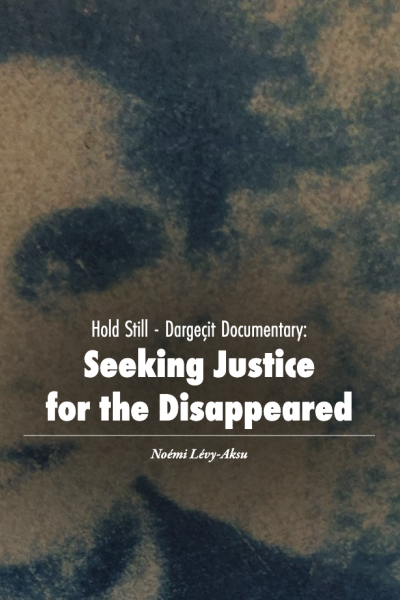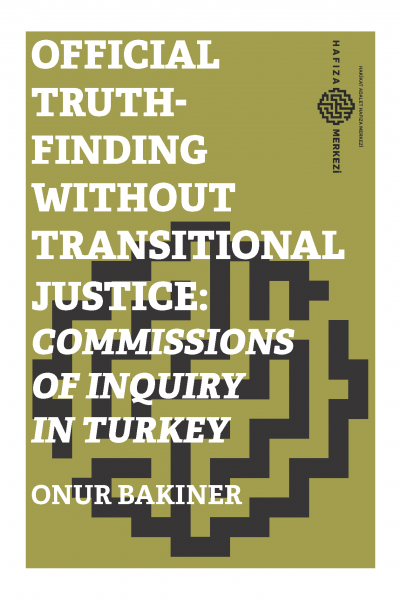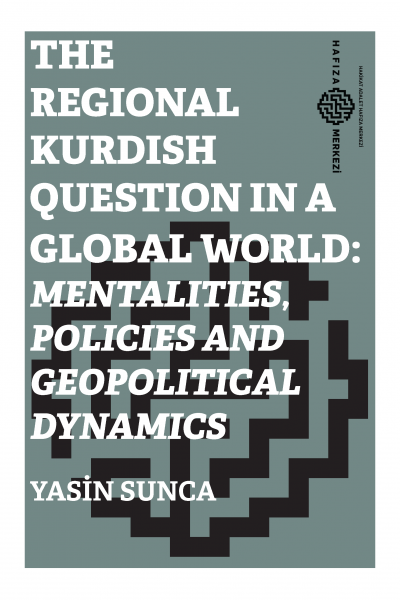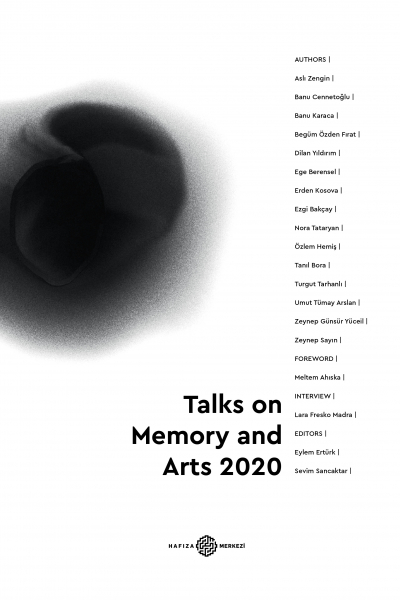
Symposium on Restorative Justice Approaches to Conflicts and Human Rights Violations-Istanbul, November 15-16
In the framework of its Justice Heals project, Hafıza Merkezi will organize an international symposium titled “Restorative Justice Approaches to Conflicts and Human Rights Violations: Opportunities and Limits”, which will be held in Istanbul on November 15th-16th, 2024.
This symposium will explore restorative justice approaches to gross human rights violations and conflicts, and question the potential of restorative justice to transform the political and social dynamics underlying these violations. We thus aim to open a space to discuss the restorative justice principles and practices, with a special focus on gross human rights violations and the ongoing Kurdish question. Bringing together academics, psychologists, educators, activists and artists from Turkey and other countries, the symposium will seek to bring new perspectives on different experiences and methods in the area of support to victims, social dialogue, memorialization and peace-building.
Why Restorative Justice?
Restorative justice first became associated with transitional contexts with the establishment of the South African Truth and Reconciliation Commission in 1997. Since then, restorative justice approaches have been adopted by a number of transitional justice institutions, in Rwanda, Northern Ireland or Timor-Leste for instance, but restorative justice continues to be mostly implemented and discussed in the framework of the criminal justice system.
While they are often combined, transitional justice and restorative justice approaches focus on different processes and purposes. Transitional justice refers to a set of mechanisms and principles used to confront gross human rights violations during transitions from authoritarian regimes to democracy or in post-conflict periods. It is an approach that predominantly uses truth-discovering mechanisms (criminal courts, truth commissions). The aim is to establish peace and justice by confronting a certain past period and to provide structural changes to prevent similar violations in the future.
Restorative justice, on the other hand, is an approach that focuses on repairing the damage caused by crimes or human rights violations by trying to understand their social and political roots, and ensuring dialogue and reconciliation between victims, perpetrators and communities, without being limited to a certain period. This approach aims to create a meaningful and lasting solution and peace process between all parties affected by the crime, rather than just punishing the crime. It aims at healing and rebuilding social relations by focusing on the needs of the victims rather than punishment.
Today, restorative justice is increasingly considered as an alternative or complementary model to existing criminal justice systems to achieve repair and reconciliation in societies witnessing conflicts and gross human rights violations. However, Yet, strong divergences exist on the suitability of applying restorative justice approaches to human rights violations, the relationship between retributive and restorative justice, and the actual contribution of restorative justice to peace and reconciliation.
Restorative Justice in Turkey
In the context of Turkey, the concept of restorative justice remains little known and debated with respect to the multiple forms of rights violations, massacres and injustices witnessed by the country for more than a century. The struggle against impunity has been at the core of the fight for justice led by activists, lawyers, survivors and victims’ relatives, who have relentlessly denounced the lack of accountability of perpetrators, protected by state institutions and political interests. At the same time, the paradigm of transitional justice raised much interest among scholars and activists in the 2000s and during the 2013-2015 peace process between the Turkish government and the PKK.
With the end of the peace process in the last months of 2015, the re-escalation of violence in Kurdish provinces and the increase in pressure on rights defenders across the country, discussions on transitional justice lost momentum on Turkey’s civil society agenda. Yet, despite the narrowed civic space and the absence of a transitional horizon, civil society organizations, grassroots initiatives, psychologists, lawyers, educators, activists and artists continue to voice their demands for truth and justice, to research and memorialize past human rights violations, and to bring support to victims and communities affected by rights violations and violence.
Beyond the case of Turkey, the ongoing gross human rights violations and conflicts in the region make it particularly timely to critically address the potential and limits of restorative justice in societies facing structural violence and wars. With the contribution of academics, psychologists, educators, activists and artists from Turkey and other countries, the symposium will create a space for sharing knowledge, experience and ideas about restorative justice.
Speakers
Ajnura Akbaš works as a research coordinator at the War Childhood Museum, where she is involved in the museum's research-documentation projects dedicated to the experience of growing up during armed conflict. She holds an MRes in History from Royal Holloway, University of London, and is currently working towards completing a PhD in Gender Studies at the London School of Economics (LSE).
Asena Günal obtained her BS in International Relations, MA in Sociology from METU and PhD from Boğaziçi University Atatürk Institute. She has worked as an editor at İletişim Publishing House from 1998 to 2005. She started to work as the program coordinator of Depo from September 2008 on. Günal is a co-founder of Siyah Bant, a research platform that documents censorship cases in the arts in Turkey, and was a fellow of the AHDA Program at Columbia University in 2014. Günal was the 2019 German-French Prize for Human Rights and the Rule of Law laureate. She is the current director of Anadolu Kültür.
Aycan Diril completed her undergraduate education and graduate education at Çukurova University, Department of Psychological Counseling and Guidance. Since 2008, she has been involved in many associations, institutions and social organizations in programs, projects and studies addressing psychological, legal, educational and health policies towards children living in war and conflict zones. Together with women’s liberation movements, she has also carried out activities against gender discrimination in academia and literature, as well as in various institutions such as trade unions. She wrote articles in newspapers and publications such as Jineolojî Magazine, JinDergi, YeniYaşam on emancipatory practices against gender discrimination, body politics, subject construction, and sexual politics. In 2021, she completed her undergraduate degree at Istanbul University Faculty of Law and started working as a freelance lawyer affiliated to the Diyarbakır Bar Association. She continues to work in the field of rights struggle.
Azad Günderci graduated from Dicle University Faculty of Medicine and became a psychiatry specialist in 2010. Dr. Azad Günderci, whose specialty thesis was awarded the best scientific study of the year, completed many years of training in psychodynamic supportive psychotherapy, cognitive behavioral psychotherapy and trauma therapies and received the title of therapist. He worked as a field worker and supervisor in disaster areas, and served as a training coordinator and consultant in many NGO projects. Günderci has also lectured in graduate programmes for psychology at universities and his scientific articles have been published in national and international journals. An author of the Psychology Kurdî magazine, Dr. Azad Günderci continues to work as a psychiatrist.
Berivan Emine Korkut completed her bachelor's and master's degree in sociology at the University of Duisburg-Essen. Since 2015, she has been working at the Civil Society in the Penal System Association (CİSST). After working in the area of Health in Prison and at the Prisoner Counseling Line, she became the Advocacy Coordinator of the CİSST in 2020. Korkut contributed to numerous publications such as Freedom of Expression in Prisons, Being an Ill Prisoner in Turkey, Health in Prison, Prisoners’ Right to Health for Physicians, Report on Earthquake and Prisons, as well as the Prison Monitoring Boards Reports since 2016.
Derya Bozarslan completed her undergraduate education at Dicle University's Faculty of Literature. After working as a project coordinator in the European Union projects office of Diyarbakır Chamber of Commerce and Industry for 3 years, she joined the Diyarbakır Art Center, the Diyarbakır branch of Anadolu Kültür, between 2011-2013. Between 2013 and 2022, Bozarslan worked at Anadolu Kültür's Istanbul office, where she focused on Kurdish literature and language studies, children's books, children's rights and refugees, children living in conflict and war zones. After spending one year in Berlin as a fellow of the Martin Roth Initiative, she joined Hafıza Merkezi in 2023, where works on children's rights violations, within the Memory and Peace Studies program.
Emel Ataktürk Sevimli graduated from Marmara Faculty of Law in 1988. A lawyer and a human rights activist, she has contributed to civil society organizations like Human Rights Association, Turkey Human Rights Foundation and Helsinki Citizens Assembly, since their foundations. She attended trainings organized by the Istanbul Bar Association Women’s Rights Implementation Center, Bosphorus University Center for European Studies and the Office of the United Nations High Commissioner for Refugees as a participant and trainer; contributed to some of the publications prepared by these organizations. She was one of the founding members of Hafıza Merkezi in 2011 and currently serves as the Director of Programs.
Fatoş İrwen was born and raised in the historical Sûr neighbourhood in Diyarbakır, Turkey. After having received her bachelor's degree in visual art department in Dicle University, Diyarbakır, she taught art in secondary schools in Batman, Diyarbakır and then Istanbul for approximately ten years. In her production, the artist examines issues related to justice, power dynamics, belief systems, geography, and body politics. She creates works that focus on the effects of these matters on the individual and society in various fields such as video, photography, painting, textile, installation and performance. İrwen, an artist and activist, was imprisoned in Diyarbakır Prison for three years between 2017 and 2020 due to political reasons, but she continued her art work during this period. Among the highlights of the artist's performance-based works are the reflections of the experiences of the individual on memory, subconscious and dreams, as well as the relationship between space and body. İrwen lives and works in Istanbul and Diyarbakır.
Hanife Kardelen Işık graduated from Ankara University Faculty of Political Science International Relations and pursued her M.A. in Human Rights at the same institution. She has volunteered and worked professionally in international organizations as well as rights-based civil society organizations. She continues to develop learning materials and facilitate workshops on pedagogies of memorialization, dialogue and peace culture education. She is a road-cycling enthusiast and curious learner on ecopedagogy.
Hazal Özvarış graduated from Boğaziçi University, Department of Political Science and International Relations. Starting her journalism career as an editor at the online newspaper T24, she continued with weekly interviews and worked as editor-in-chief. She was one of the founding members of the independent journalism platform P24. After completing her master's degree in political science at the University of Gothenburg as a fellow of the Swedish Institute, she started working at Anadolu Kültür and led the Adalet Atlası (Justice Atlas) podcast project. In addition to the book Atlası Adalet (Justice Atlas), which consisted of the transcriptions of the podcast episodes and was published by İletişim Yayınları in 2023, her book titled Kayıp Medyanın İzinde: 2012-2018 (In Search of Lost Media: 2012-2018) was published in 2018 by P24 Medya.
İdil Elveriş is a graduate from Istanbul University Faculty of Law. She received her Master of Laws degree from Tulane University in New Orleans in 1998. In 2012, she received her PhD from Istanbul Bilgi University's Political Science and International Relations program. She has worked as a lawyer and legal consultant in New York, Kosovo, the UK and Istanbul. From 2003 to 2019, while working at Istanbul Bilgi University Law School, she pioneered legal clinics and pro bono legal services in Turkey. Her research interests include access to justice, law and politics, the judiciary and alternative dispute resolution. She is also a mediator, producer of the English-Turkish podcast on disputes, We Can Find a Way, a volunteer of the Pro Bono Association, which works to build bridges between NGOs and law firms, and a member of the European Forum for Restorative Justice.
Kerry Clamp is an Associate Professor of Criminology at the University of Nottingham, UK. She is a leading scholar on restorative justice in transitional settings, known for her monograph Restorative Justice in Transition (2014) and edited volume Restorative Justice in Transitional Settings (2016), both published by Routledge. Her co-authored article, More Than Words (2012), with Professor Jonathan Doak, critically examines the challenges of applying democratic restorative justice in transitional justice frameworks. She sits on the International Advisory Board for The International Journal of Restorative Justice, is the co-founder and co-chair of the European Society of Criminology's Working Group on Restorative Justice, and is an Associate of the Restorative Research, Innovation and Education Lab, Dalhousie University.
Lina Malagon Diaz is senior lecturer at the University of the West of England (UWE Bristol) and Transitional Justice Fellow at the Harvard Carr Center for Human Rights Policy. Her career has balanced academic scholarship with work as a researcher, litigant and developing advocacy in conflict-affected and post-conflict countries, in particular in Latin America. For more than 15 years, Lina worked as a consultant for the International Labour Organisation and civil society organisations. In 2016, Lina worked as the Deputy Director of the High Commissioner for Victims' Rights, Peace and Reconciliation of the Mayor's Office of Bogotá, Colombia. During five years, she also served as the Director of International Advocacy at the Colombian Commission of Jurists, a Colombian NGO.
Manal Hamdoun Ghandour holds a political sciences degree and an MA in Education and Curriculum Designing. Manal has been working on human rights for over 15 years in Lebanon and Nigeria. She currently serves as the Project Coordinator at ACT for the Disappeared, a Lebanese human rights organization working on dealing with the past, peacebuilding, and human rights through the issue of the missing and disappeared from the Lebanese war. Manal has extensive experience in designing courses for training teachers and for cultivating compassion and empathy in different environments; she actively leads discussions and activities related to transgenerational trauma and trauma-sensitive peacebuilding.
Nesrin Uçarlar received her PhD in Political Science from Lund University in 2009. She has taught lectures on political philosophy, theories of nationalism and transitional justice at various universities. She has worked and published on confronting the past, the search for justice and for truth, racism and nationalism. Uçarlar is the author of the book titled Hiçbir Şey Yerinde Değil: Çatışma Sonrası Süreçte Adalet ve Geçmişle Yüzleşme Talepleri (Nothing is as it Should Be: Demands for Justice and Confronting the Past in the Post-Conflict Process), published in 2015, and she authored the report A Peaceful Search for Truth in Turkey: Confronting Racism, published in 2022 by Hafıza Merkezi.
Noémi Lévy-Aksu received her Ph.D in history from the Ecole des hautes études en sciences sociales (EHESS) in 2010. From 2010 to 2017, she was an assistant professor at Boğaziçi University, Department of History and authored a number of academic publications. She completed a Graduate Diploma in Law in London in 2018 and contributed to the legal work of the Democratic Progress Institute and the Redress Trust in 2018-2019. She joined Hafıza Merkezi’s team in June 2020 and she is currently the director of the Memory and Peace Studies Program.
Özcan Alper studied physics and history of science at Istanbul University, before focusing on art and cinema. His first film, Autumn, released in 2007, was shown at more than 60 festivals and won nearly 40 awards. His second film, The Future Lasts Forever, premiered at the 36th Toronto International Film Festival. His third feature film, Memories of the Wind, was supported by the Cannes Film Festival Cinéfondation L'Atelier and the Rotterdam Film Festival Hubert Bals Fund. His fourth film, Blackest Night, was supported by the Berlinale World Cinema Fund and the French Aide aux cinémas du monde (CNC). Özcan Alper recently completed the Netflix Original movie Poets Festival, starring Kıvanç Tatlıtuğ. His latest film Early Winter is currently in post-production. Alper is also working on the animated film HAW, adapted from Kemal Varol's eponymous book.
Özlem Zıngıl graduated from Marmara University Faculty of Law. She received her LL.M in Law of Economics from Galatasaray University in 2007 and M.A degree in Cultural Studies from Istanbul Bilgi University in 2011. She is pursuing her Ph.D. in Public Law at Istanbul Bilgi University. A member of the Istanbul Bar Association since 2005, she worked as a corporate and independent lawyer, and served as a project coordinator and a general coordinator at Transparency International. She joined Hafıza Merkezi in 2017. She is currently the Director of the Legal Studies Program.
Turgut Tarhanlı is a professor of International Law and Human Rights Law at Istanbul Bilgi University Faculty of Law, after having worked at Istanbul University. He served as the dean of the Faculty of Law between 2002-2019 and as the director of the Human Rights Law Research Center between 2000-2020. He teaches International Human Rights Law, Business and Human Rights and Human Rights Activism in graduate programs. He has worked on projects on dispute resolution, negotiation, international crimes and restorative justice at Harvard University and Princeton University and was twice a visiting scholar at New York University. He has published six books and numerous articles in Turkish and English. In 2001, he was awarded a “Certificate of Appreciation” by the President of the UNHCR for his work on refugee law in Turkey.
Yasin Duman teaches postgraduate courses in mental health and psychosocial support and forced migration at Queen Margaret University and is a postdoctoral researcher at the University of Leuven, where he is conducting research on the forced migration, return and reintegration of Yazidis. His current research topics include “comedy and psychosocial well-being among Kurds”, “integration of the health system for asylum seekers” and “social determinants of psychosocial well-being”. In addition to his academic work, he has worked as a consultant for the United Nations International Organization for Migration's psychological support, protection, social cohesion and transitional justice programs for displaced persons in Syria, Kurdistan, Afghanistan and Iraq.
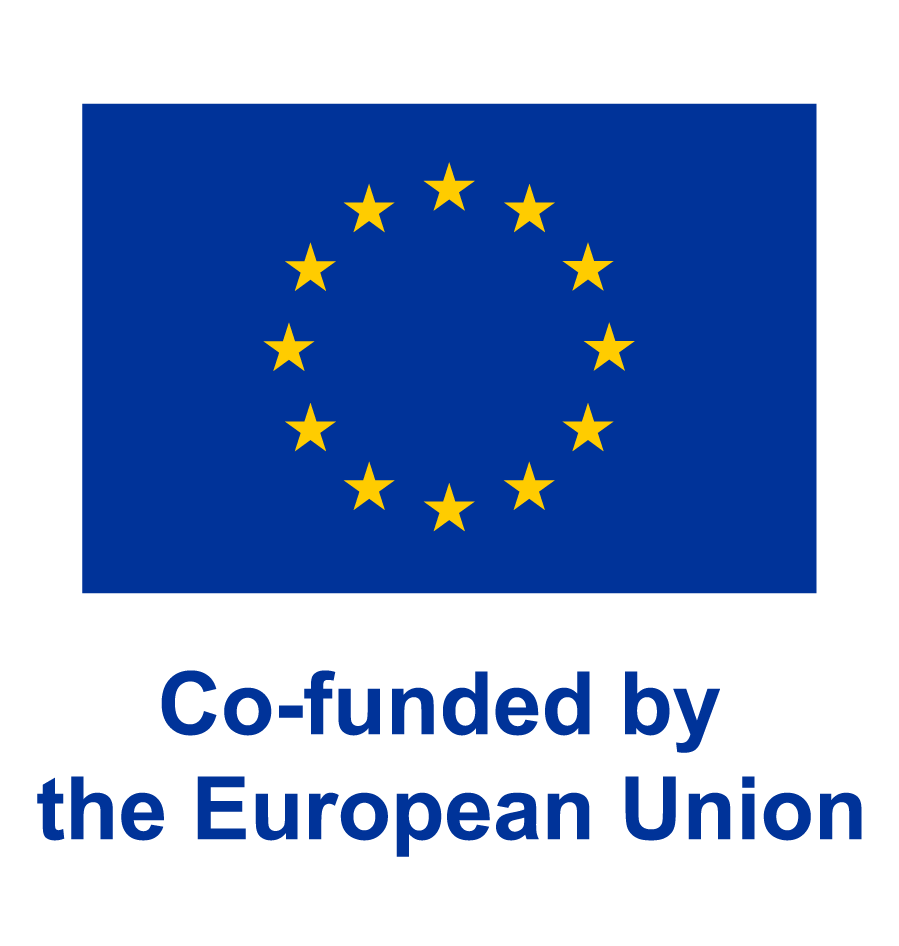
This syimposium is organized out with the support of the European Union through the Justice Heals project. Its contents are the sole responsibility of Hafıza Merkezi and do not necessarily reflect the views of the European Union.


